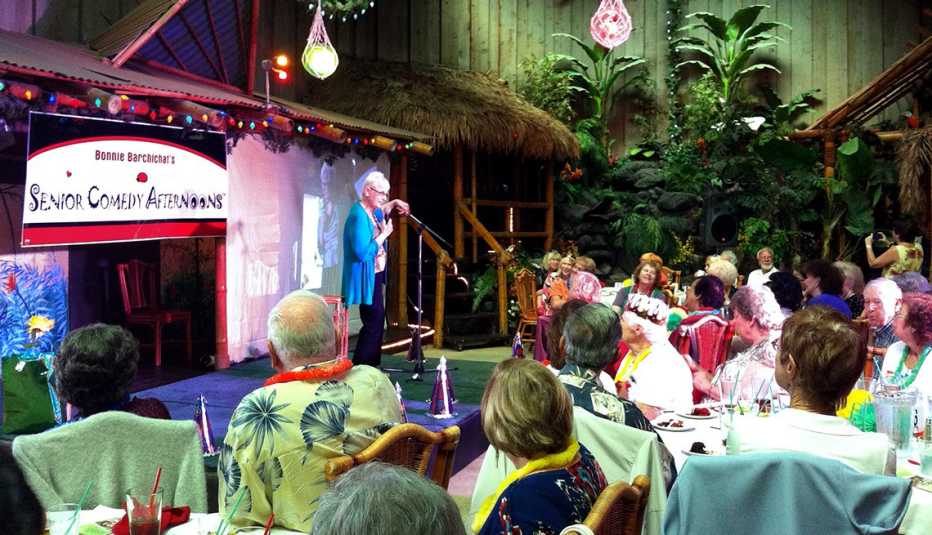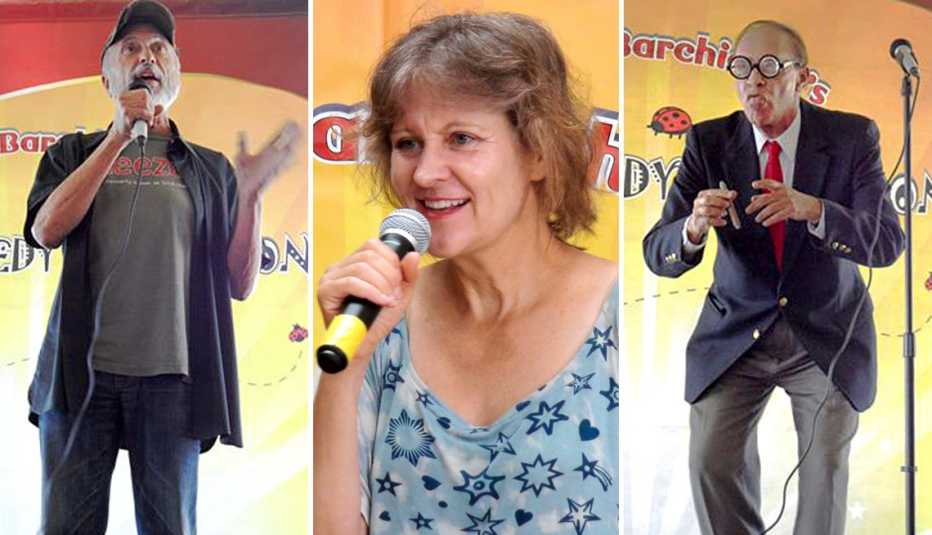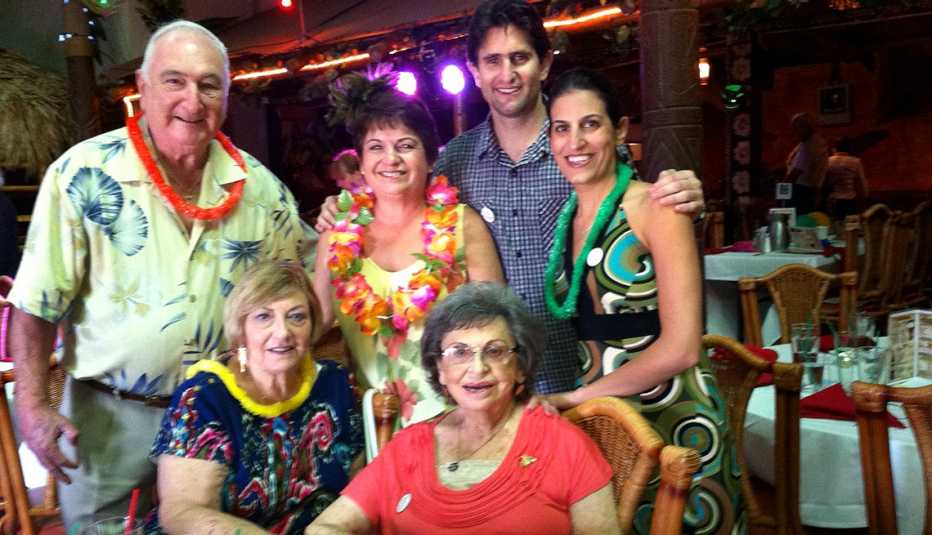AARP Hearing Center


As Cole Porter famously said, “All the world loves a clown.” The same is true of a great comedian. Because who doesn’t feel uplifted after a night at a comedy club where you laugh until it hurts? But for those who chuckled along to the rants of Don Rickles or the goofball routines perfected by Steve Martin, stand-up comedy today may be something of a letdown. Sure, some older folks appreciate edgy humor à la Amy Schumer and Dave Chappelle, but many like a cleaner, more lighthearted approach. The latter is the audience that Bonnie Barchichat and her roster of older comics cater to with the Senior Comedy Afternoons program, which has been bringing laughs throughout Southern California, in cities such as San Juan Capistrano, Hermosa Beach and Long Beach.
Based in Redondo Beach, the program was the comic genius of Barchichat, who took her mother, Yetta Schachter, then 89, to a show at the Improv, thinking she would love it because she had a great sense of humor, was mentally sharp and always appreciated a good joke. The result was the opposite. As Barchichat recalls, “She hated it. She thought the comedian was crude, she couldn’t relate to his humor, and the show was too late at night.”
She realized that her mom and others her age belonged to a niche that was being ignored — those who wanted to see comedy but of the kind they could relate to and with inoffensive language. “I thought about this incident,” she says, “and that was the motivation that got me thinking about how the humor has to be skewed to the audience.” So, using her decades of marketing experience, Barchichat decided to fill this void on the comedy club circuit. She met with an Improv club manager in Brea, Calif., and convinced him that older people make up a large segment of the population who appreciate comedy and that she could bring them in to his club to see talented comics their own age riff on topics they care about.


Barchichat held her first Improv show at Christmastime in 2010 and continued with other afternoon shows at different Improv locations. She has long since moved the program to different venues (country clubs, restaurants with ballrooms and community theaters), ones that don’t mind afternoon performances or audiences who are more likely to order soft drinks than hard liquor.
The comics, whom she finds through auditions, YouTube videos of stand-up routines and recommendations from other performers, range in age from their 60s to their 90s and consistently fill the house and bring it down with age- and language-appropriate humor. Among the subjects that make for rich material are medical problems, grandchildren, memory issues, and being single and older.
Some of Barchichat’s comics come with impressive entertainment backgrounds. “I’ve had guys who’ve been on the Johnny Carson show; I’ve had a writer for Conan O’Brien’s show,” she notes. “One woman was on Seinfeld and had a one-woman show. One was on Broadway last year.”



































































More on Home and Family
How to Create an Oral Family History
Your family story is easier to tell — and more vital to preserve — than ever.